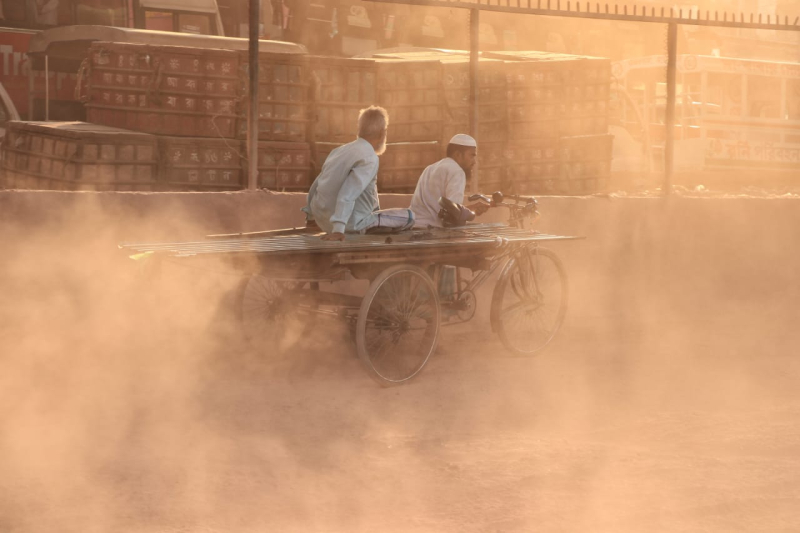- Death toll from central Israel strike rises to 5 |
- DSE sinks 138 points on broad sell-off; CSE also tumbles |
- Inside story of a roommate murder after quarrel in Dhaka |
- Jamaat condemns Khamenei’s killing, holds protest rally in Dhaka |
- Iran to pick next supreme leader in ‘one or two days’ |
Dhaka’s air 2nd worst in the world on Thursday morning

Air pollution in Dhaka City on Thursday. UNB
Dhaka, Aug 31: Dhaka’s air quality was ranked second worst in the world on Thursday morning.
With an air quality index (AQI) score of 169 at 8:58 am, Dhaka’s air was categorised as ‘unhealthy’.
An AQI between 101 and 200 is considered 'unhealthy', particularly for sensitive groups while an AQI between 201 and 300 is said to be ‘very unhealthy’.
Indonesia’s Jakarta, Qatar’s Doha and India’s Kolkata occupied the first, third and fourth spots on the list, with AQI scores of 175, 153 and 153, respectively.
In Bangladesh, the AQI is based on five criteria pollutants -- Particulate Matter (PM10 and PM2.5), NO2, CO, SO2 and Ozone.
Dhaka has long been grappling with air pollution issues. Its air quality usually turns unhealthy in winter and improves during the monsoon.
Air pollution consistently ranks among the top risk factors for death and disability worldwide. Breathing polluted air has long been recognised as increasing a person’s chances of developing a heart disease, chronic respiratory diseases, lung infections and cancer, according to several studies.
As per the World Health Organization (WHO), air pollution kills an estimated seven million people worldwide every year, largely as a result of increased mortality from stroke, heart disease, chronic obstructive pulmonary disease, lung cancer and acute respiratory infections.
The worsening air quality of Dhaka city is threatening the health status and life of its residents. - UNB

